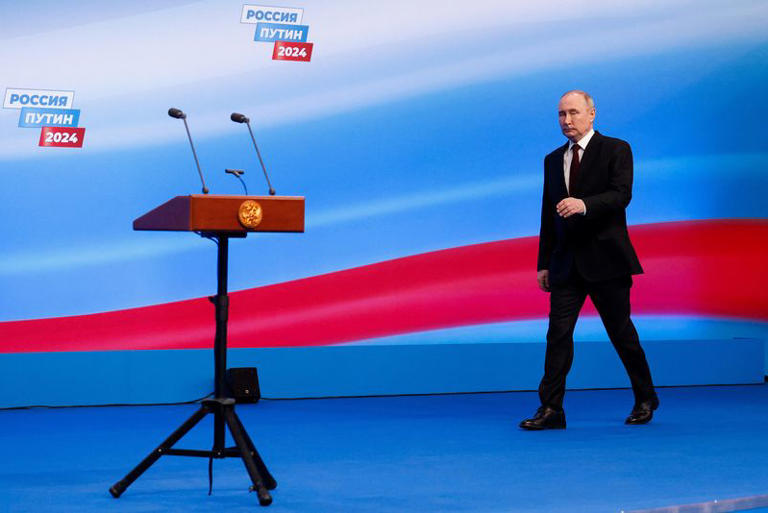In a resounding victory, Russian President Vladimir Putin has secured a record post-Soviet landslide in the country’s recent election, reaffirming his stronghold on power and signaling a significant shift in Russia’s political landscape. Despite widespread protests and international scrutiny, Putin’s triumph underscores his enduring influence and sets the stage for a new chapter in Russian politics with far-reaching implications both domestically and globally.
Putin’s landslide win, with an overwhelming 87.8% of the vote according to exit polls, solidifies his position as Russia’s dominant political figure for the foreseeable future. With this victory, Putin is poised to extend his tenure and potentially surpass Josef Stalin as Russia’s longest-serving leader in over two centuries, further consolidating his authority and shaping the country’s trajectory.
The election outcome sends a clear message to the West that Russia under Putin’s leadership remains a formidable force to be reckoned with, both in times of peace and conflict. For Putin, a former KGB lieutenant colonel, the result reaffirms his vision of a strong and assertive Russia on the world stage, challenging Western hegemony and asserting Russian interests on multiple fronts.
However, despite the apparent electoral triumph, questions linger over the legitimacy of the election process. Critics, both domestically and internationally, have raised concerns about the lack of genuine competition, citing the imprisonment of political opponents and restrictions on free and fair elections. The White House’s assertion that the election was neither free nor fair underscores the ongoing scrutiny of Putin’s governance and Russia’s democratic credentials.
The election also takes place against the backdrop of heightened tensions with Ukraine, with Putin characterizing Russia’s military intervention in the region as a “special military operation.” The conflict in Ukraine has cast a shadow over the electoral process, with Ukraine’s attacks on Russian territories and ongoing border skirmishes exacerbating regional instability and fueling geopolitical tensions.
Putin’s victory, while expected, serves to reaffirm his domestic popularity and broad support among the Russian electorate. The high voter turnout, surpassing previous levels, reflects Putin’s ability to mobilize his base and rally support behind his leadership, despite growing discontent and economic challenges facing the country.
Putin’s reelection is likely to have significant implications for Russia’s domestic policies, including economic reforms, social welfare programs, and efforts to combat corruption. Additionally, his continued leadership will shape Russia’s foreign policy agenda, influencing relations with neighboring countries, major global powers, and international organizations.
As Putin embarks on another term in office, the world watches closely, mindful of the implications of his victory for Russia’s political landscape and the broader geopolitical balance of power. Whether Putin’s reelection heralds stability and continuity or further challenges to democracy and international norms remains to be seen, but one thing is certain: Putin’s landslide victory will reverberate far beyond Russia’s borders, shaping the future trajectory of global politics.
